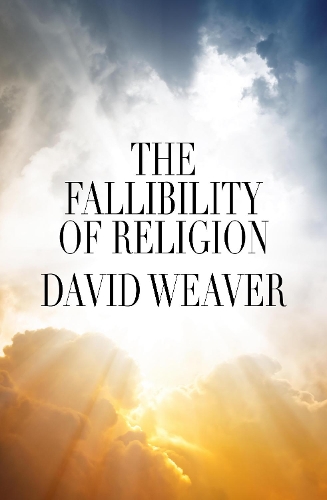
The Fallibility of Religion
(Paperback)
Publishing Details
The Fallibility of Religion
By (Author) David Weaver
Pepped Warbeck Publishing
Pepped Warbeck Publishing
12th February 2020
New Zealand
Classifications
General
Non Fiction
Religion and beliefs
Physical Properties
Paperback
168
Width 153mm, Height 234mm, Spine 12mm
Description
'Unless major changes in unquestioned beliefs and religious dogma take place soon, religion is doomed to extinction and mankind to social chaos.' In The Fallibility of Religion, David Weaver explores this statement with a commitment to creating the much-needed clarity he believes is necessary in discussing the future of religion. Spiritual belief is, in Weaver's view, a personal matter, not to be imposed doctrinally, and religion is a social construct with the critical role of providing structures within which communities can prosper and maintain communal values and social order. In this passionate book, Weaver asks, How is religion to survive and continue to play its all-important role in the modern, materialistic and sceptical environment prevalent in much of the world today Weaver argues that we need religion to survive in order to fulfil its true purpose of providing a social structure and rules for communal behaviour, but he maintains that this will only happen if the existing religious claims to infallibility and exclusivity are eliminated. Weaver states that many millions of people who no longer believe in a spiritually ordered life are rejecting religion without recognising its intrinsic value as the guardian of our communal values and the rightful authority for the maintenance of social order. The one thing that religion is not, Weaver believes, is the owner of our spiritual beliefs. In this passionate thesis, Weaver asks, and responds to, the question, How is religion to survive and continue to play its all-important role in the modern, materialistic and sceptical environment prevalent in much of the world today
Author Bio
David Weaver was born in India in 1930; his mother was a New Zealand Truby King (Karitane) nurse, his father a British army officer in the Indian Army. Weaver moved to New Zealand with his young family in 1976 and retired from commerce in 1995. As a retirement activity, he enrolled part-time at Victoria University in 2000, attaining a double BA degree in Classics and Asian studies, followed by a Masters degree in Asian Studies. He has had two research papers published by the Indian Anthropologist in New Delhi and one review paper published by SITES, a New Zealand anthropology and cultural studies journal. The Fallibility of Religion is his first book.
